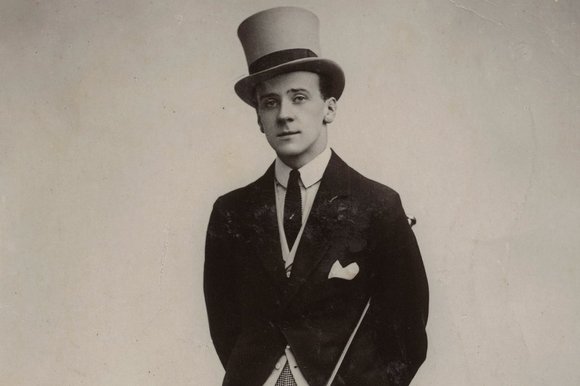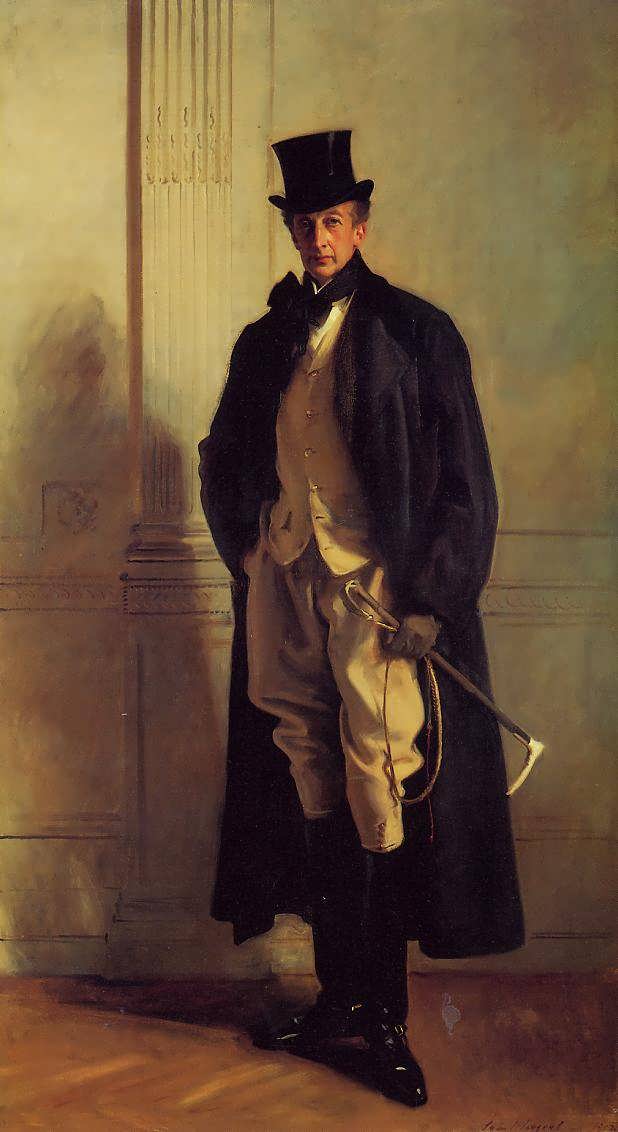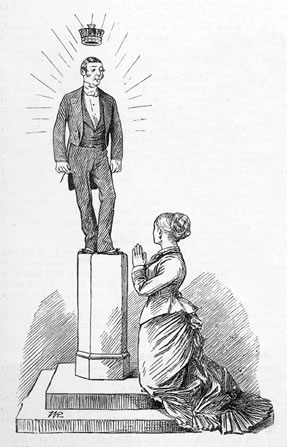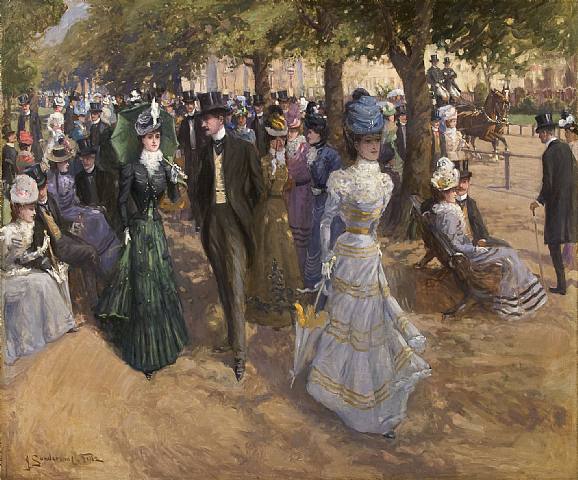
The Regency era Corinthian, the Parisian flâneur, and the Broadway playboy had its late Edwardian England counterpart in the knut. The word was popularized in the revue The Passing Show, which opened at the Palace Theatre in April 1914, and made an instant star of its lead actor, Basil Hallam when he sang “Gilbert the Filbert,” whose rousing chorus made the song infectiously popular with audiences:
I’M GILBERT, the filbert,
The nut with a k.,
The pride of Piccadilly,
The blasé roué;
Oh, Hades, the ladies,
They’d leave their wooden huts
For Gilbert, the filbert,
The colonel of the nuts.
P.G. Wodehouse immortalized the knut, or “drone” in his particular parlance, in his works, stating (in the preface to Joy in the Morning): “The Edwardian knut was never an angry young man. He would get a little cross, perhaps, if his man Meadowes sent him out some morning with odd spats on, but his normal outlook on life was sunny. He was humble, kindly soul, who knew he was a silly ass but hoped you wouldn’t mind. He liked everybody, and most people like him. Portrayed on the stage by George Grossmith and G. P. Huntley, he was a lovable figure, warming the hearts of all. You might disapprove of him not being a world’s worker, but you could not help being fond of him…Most knuts were younger sons, and in the reign of good King Edward the position of the younger son in aristocratic families was . . . what’s the word, Jeeves?, Anomolous? You’re sure? Right ho, anomolous. Thank you, Jeeves. Putting it another way, he was a trifle the superfluous side, his standing about that of the litter kittens which the household cat deposits in the drawer where you keep your clean shirts.”
Further Reading
THE KNUTS O’ LONDON: Desperate Fellows All, and the Distinction Between the “Knut” and the “Blood” Nuts by P. G. Wodehouse – Vanity Fair (Sept. 1914)
The Last of the Nuts
Basil Hallam Radford also known as ‘ Gilbert the Filbert’




